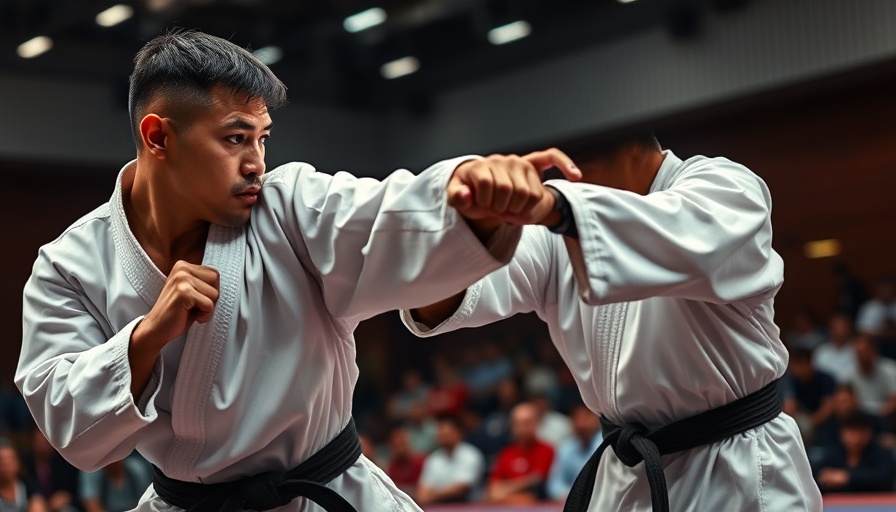
Ryo Kiyuna's Spectacular Olympic Journey
At the 2020 Summer Olympics, held in Tokyo, Ryo Kiyuna showcased his exceptional skill in the kata discipline of karate, claiming the gold medal in the men's event. Hailing from Okinawa, the birthplace of karate, Kiyuna's victory wasn't just a personal triumph; it resonated deeply with the roots and cultural significance of martial arts within Japan. While his compatriot faced a fierce competition in the women's event, Kiyuna's performance stood apart, marked by precision and artistry that enchanted viewers and judges alike.
The Art of Kata: Technique Meets Tradition
Kata, a fundamental practice in karate, involves performing a series of moves against an invisible foe. The discipline integrates both mental and physical components, requiring practitioners to depict strength, grace, and control. Athletes choose from numerous forms, with Kiyuna demonstrating flawless execution of his chosen kata. His technique involved intricate elements, including rhythmic movements and maintaining balance, earning him a stellar score of 28.72 out of 30.
Such performances reflect years of rigorous training. Kiyuna trained under karate legend Tsuguo Sakumoto, practicing tirelessly to elevate his skills. His commitment to integrating Okinawan cultural elements, such as dance, into his routines illustrates the unique connections between martial arts and heritage.
A Personal Triumph Beyond the Medal
Kiyuna's achievement transcended the realm of sports. Upon winning, he poignantly held a photograph of his mother, who had passed away in 2019. This emotional tribute was a reminder that although individual success is celebrated, the journey often involves deep personal sacrifices and memories that drive competitors forward. His statement of wishing to report his win to his late mother touched on universal themes of love, loss, and remembrance.
The Future of Karate: A Stepping Stone for Women
As karate has made its debut at the Olympic Games, the future of this martial art could pave the way for increased participation among women. The empowerment through martial arts enables women to cultivate self-defense skills, physical fitness, and self-confidence. Programs dedicated to women’s safety and martial arts, such as ladies' self-defense or women's combat training in Gurnee, focus on building a sense of community and readiness.
Organizations like Gruber's Karate not only aim to develop skills but also foster an inclusive environment for women seeking to improve their understanding of martial arts. By emphasizing personal safety and strength training, these classes are crucial for self-empowerment, helping participants navigate both physical and emotional challenges.
Why Women Should Embrace Martial Arts
Martial arts offer diverse benefits, from improving physical health to boosting mental resilience. Whether it’s through karate, kickboxing, or Jiu-Jitsu, women can greatly enhance their self-defense capabilities while enjoying group activities. Engaging in martial arts provides social connections that can lead to lasting friendships and a supportive network of like-minded individuals striving for wellness and empowerment.
As Kiyuna demonstrated that day in Tokyo, embracing challenges and honing one's craft can lead to unprecedented triumphs—not just in competitions but in life. No matter the age or skill level, martial arts can play a pivotal role in personal development and safety.
 Add Row
Add Row  Add
Add 




Write A Comment